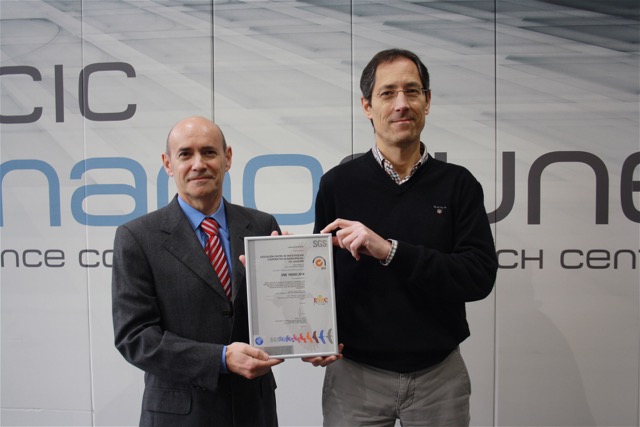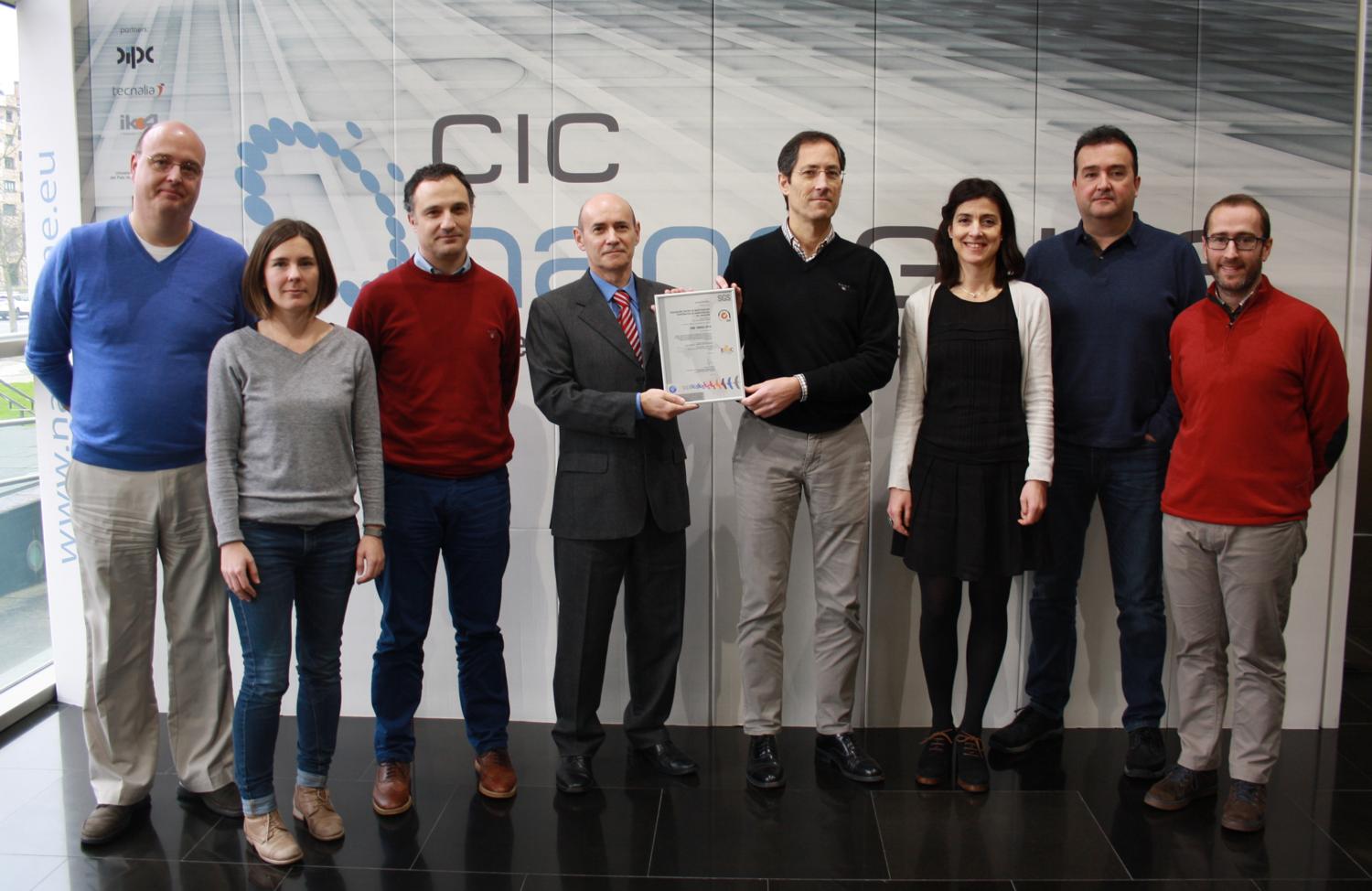Related news by tag Nano in the Basque country
NanoGUNE has its R&D&i management system certified in accordance with the UNE 166002:2014 Standard

The awarding of the certificate constitutes recognition of the Center’s excellence in the field of research management and technology transfer. What is more, the system deployed at nanoGUNE is geared towards quality in management and ongoing improvement, with the ultimate aim of putting the Basque Country at the cutting edge in nanoscience and nanotechnology.
The management system aims to optimize all the processes relating to R&D&i activity and make them more efficient. In this context, nanoGUNE has deployed a management policy as well as various processes and procedures geared towards ensuring the efficient management of all the research projects it runs.
José María Pitarke, the CEO of nanoGUNE, pointed out that “our commitment is to combine excellence research with the constant quest for potential applications and opportunities that the development of nanotechnology may offer us, thus contributing towards the competitive development of the Basque Country and the entire satisfaction of the interested parties, among which stand out our own employees, our industrial environment, the public institutions and the whole of society in general; all this while ensuring the ongoing quest for best practices and compliance with the requirements applicable, including those arising out of the UNE 166002:2014 Standard, which underpins our R&D&i management system”.
SGS
SGS is a global leader in inspection, verification, analysis and certification. It is regarded as the main global reference in quality and integrity, and has over 90,000 employees and a network of over 2,000 offices and labs across the world to offer companies independent services that enable risks to be limited, processes to be streamlined and operations to take place more sustainably.

Donostia – San Sebastián, a city of (nano) science and technology
The beauty, gastronomy and cultural life of San Sebastian are some of the most outstanding assets of our small city. Nevertheless, following the last virtual issue in ACS nano, San Sebastian also stands as a city of science and technology, specially devoted to the nanoscience field. The present work highlights the contribution of the nanoscience community of San Sebastian to nanoscience and technology.
As described in the editorial of this issue, some of the main representatives of the nanoscience community in San Sebastian stand together, namely, the Nanoscience Cooperative Research Center (CIC nanoGUNE), the Donostia International Physics Center (DIPC), the Basque Center for Macromolecular Design and Engineering (Polymat), the Center for Cooperative Research in Biomaterials (CIC biomaGUNE), the Technology Centers Cidetec, CEIT, and Tecnalia, and the Health Institute Biodonostia along with the Centro de Física de Materiales (CFM), a joint initiative of the University of the Basque Country (UPV/EHU) and Consejo Superior de Investigaciones Científicas (CSIC).
This research force has contributed considerably to ACS Nano with more than 100 publications during the past decade, some of which have already had significant impact and are highlighted in this virtual issue.
As reported by the authors “This collaborative work has been combined with our commitment toward industrial development of nanotechnology both locally and worldwide, which has led not only to an increase in top-notch industrial research in our community but also to the launch of a number of promising nanotechnology-based start-up companies”.
The entities highlighted above, express they are confident that, with the continuous and synergetic support from Spanish and Basque authorities, the research activity in the area of nanoscience and nanotechnology will continue to flourish in our beautiful city.
